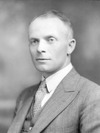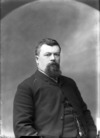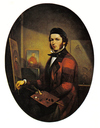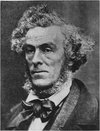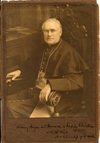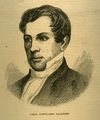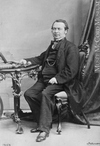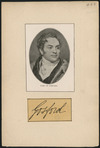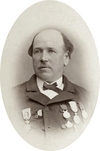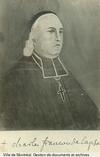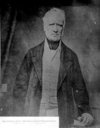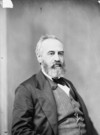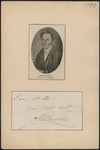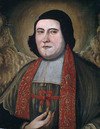would resign if the clergy’s campaign against the bill continued. His departure would have led to Bouchard, who had an anticlerical reputation, being sworn in as premier. Despite opposition, the Act
denominational lines as well as between laity and clergy. Each major denomination had its own traditions and convictions about the role of education for the child and society. On one point, however, almost all
career with encouragement from three leading social groups interested in art: the clergy, politicians, and businessmen. In October 1840 a correspondent of the Quebec Mercury reported that in
individuals.
Religious scenes are infrequent in Krieghoff’s work. The mystical aspect of convent life, the activities of clergy or nuns, interested him little
region, and a second suggested by the anglophone diocesan clergy, headed by Bishop Alexander
Christie*] and Ogden, who think like him, and all the rest of the house.” Early in 1829 Julie warned her husband that most of the clergy found him too strident and, like Pierre-Flavien
Catholic clergy, had been a conscious rival of Whelan for the attention of Island Catholics. In 1867 Bishop MacIntyre, an ardent and energetic ultramontane with little patience for dissenting views, was in
privileged position of the established church by recommending that the clergy reserves should be applied to general education and not given solely to the Church of England. However, as the magistrate system
only exceptions to Ainslie’s general condemnation of the ungrateful Canadians were the “nobles” and the clergy, both royalist, and the militia within the city, whose courage during the repulse of Richard
years having driven most of the settled clergy away. Alline’s New Light churches were organized around his insistence upon the crisis conversion, and partially reflected his beliefs. Only those who had
the Roman Catholic clergy, such as Father Gaulin, and by complete failure to achieve the progress he so
masterpiece in the Gothic idiom, describing it in later years as “one of the finest gothic interiors in Canada.” Yet by the late 1850s his relationship with the clergy had seriously deteriorated. Attempts by
holidays. That was going too far. Some of the clergy and lay people in Quebec, Montreal, and rural areas publicly expressed disapproval of the bishop of Capsa; the Montreal Gazette commented
of political motives. He was anxious to keep the political influence of the Roman Catholic clergy in check as well as maintain law and order. He had not dismissed the Liberal council realizing that the
at Detroit, refused to recognize the authority of governor and intendant.
In religious matters he gave complete satisfaction to the whole clergy
Boucher*. He was not disliked by any faction of the Conservative party, being supported by the Roman Catholic clergy, respected by the English-speaking community, and able to rally the ultramontanes
weight behind Papineau and his ideas. His unconditional support of the Patriote party was confirmed at every vote by roll call in the house. Like his leader, he attacked the clergy who openly opposed the
exchanging parcels. An Anglican, he was permitted in 1837 to exchange land in Caradoc Township for clergy reserves in Bayham, which he intended to donate as a glebe to the new church in Port Burwell. An
with its affairs. In March 1829 the House of Assembly had passed a law to create schools run by trustees, a measure which intensified the struggle between the clergy and the Canadian petite bourgeoisie
to the others. I have made him my vicar general because of the great services that he renders this diocese.” Obviously Bishop Saint-Vallier had finally found among his clergy a man upon whom he could


